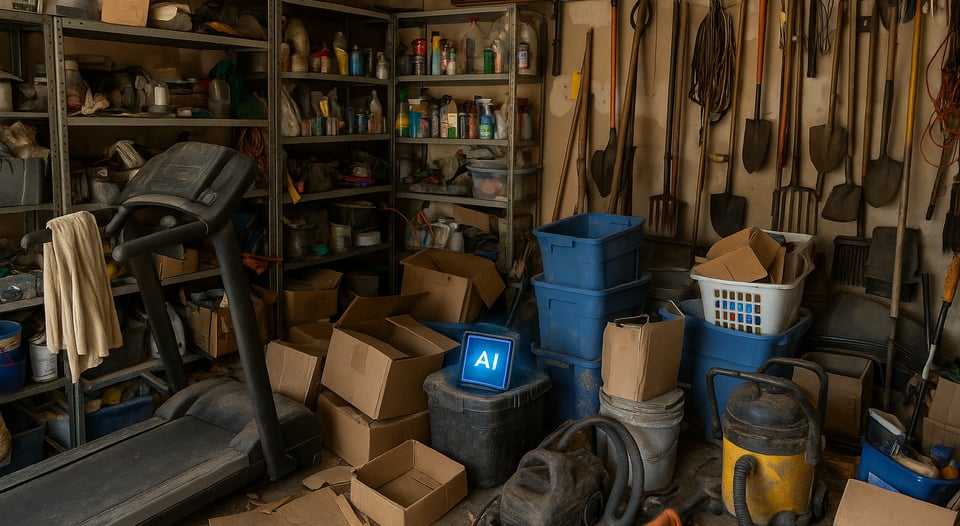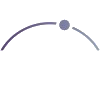Do tools extend our capability, or constrain it?
This edition reveals how our tool choices shape strategy, demanding awareness and alignment.
One signal 🔭
One prompt 🧠
One subtraction opportunity ➖
Created by Sam Rogers · Powered by Snap Synapse
🔭 Signal: Tool Choice Is Becoming Strategy
The era of "just pick a tool and go" is over. Each new platform added to the stack now encodes a whole worldview, far beyond the simple workflows we used to map. A team’s software constellation signals its decision-making posture. Its values, its fears, and how seriously it takes change.
What I’m seeing:
Organizations are still treating tooling like a procurement process.
Pick the CRM. Pick the HRIS. Pick the AI, and then plug it in.
There! All done, right?
"Implementing a system and turning it on are very different things" 🤦
Hey, our tools aren’t neutral anymore. They really haven’t been since they became software.
Each one bakes in assumptions about what work is, who holds power, and how change happens (or doesn’t). The more tools we add without this awareness, the more fragmented our organizational operating system becomes.
And the more misaligned those assumptions are with our org’s actual needs and abilities, the more entropy we’re inviting in. And amplifying.
Why it matters:
Fixating on a tool as a solution may not break things right away, but it risks invisibly anchoring us to decision logic that's dead wrong for what we do today. Or maybe it really does solve the problems of today, but restrains us from getting where already declared we're heading? Either way, once in place this is hard to reverse.
🧠 Strategic Prompt
What does your current toolkit assume about work, and is that still true today? And will it likely still be true a quarter or two from now?
Or
What’s one tool you’re defending today based on yesterday’s logic?
➖ Suggested Subtraction
🍼 Sunset a once-essential tool that’s now just a pacifier.
Before augmenting or replacing an existing tool with AI, start by asking:
When was the last time this tool produced real value?
Who depends on it, and who is still pretending they need it?
What would change if it were simply marked "read-only"? No new entries.
Remember that sunsetting isn't deleting. So keep the data. But ditch the illusion that it’s still serving any real purpose.
When tooling becomes merely symbolic, we can re-ground it in actual use.
🔧 Analogy of the Week: The Difficult Garage

Picture your tech stack like a cluttered garage. Tools everywhere, each one originally purchased for a real and specific need.
But now?
That old LMS is like the treadmill draped in laundry. Nobody ever really wanted it.
The fancy analytics suite? Like the barely-used pressure washer gathering dust. Great in theory, used less than a handful of times some time ago.
And the shiny AI tool? That might just be the next precision torque wrench & socket set...that doesn't fit any of the bolts you have or play nicely with any of your other tools.
Ever notice how the more tools you cram in, the harder it becomes to move around? Let alone get anything meaningful done.
Let alone find the tool that you know you have somewhere but that’s too hard to get to when you want it.
And let alone remembering how maintain and use that powertool safely.
Really, it's not about the tools you have at all.
It's about the tools you can actually reach and use well when you need them.
♪♬ Closing Notes
Tooling should extend capability, not define it.
If your stack is beginning to whisper that your strategy is fragmented, it might be time for a briefing.
🔗 Signals Briefings surface 3-5 strategic tensions in your unique organization/industry, decode their implications, and help you subtract complexity before it calcifies. Book yours today.
🔗 Prefer interactive AI guidance? Meet our new CAIO Copilot built from this same Signals DNA and freely available via ChatGPT.
🔗 If you found value in this newsletter, please forward it to a friend/colleague. And if someone forwarded this to you, you can subscribe here to get our next issue.
Until next time,
Sam Rogers
Strategic Subtractor, Snap Synapse
